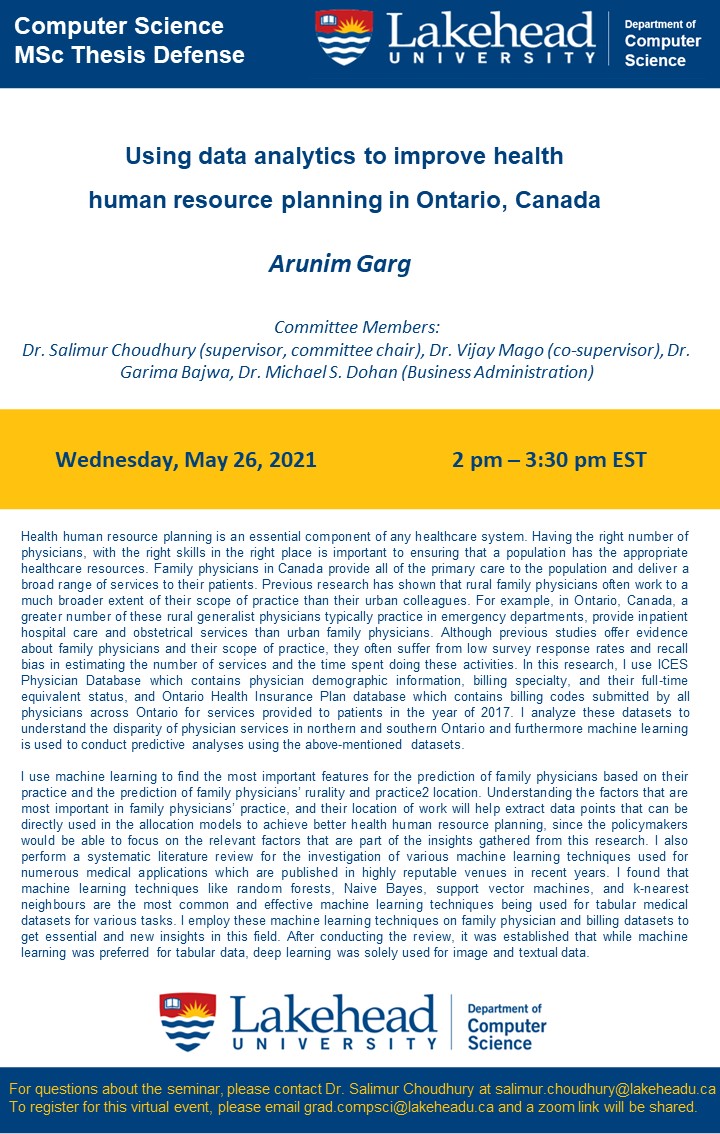Computer Science Department Thesis Defense - Arunim Garg

Please join the Computer Science Department for the upcoming thesis defense:
Presenter: Arunim Garg
Thesis title: Using data analytics to improve health human resource planning in Ontario, Canada
Abstract: Health human resource planning is an essential component of any healthcare system. Having the right number of physicians, with the right skills in the right place is important to ensuring that a population has the appropriate healthcare resources. Family physicians in Canada provide all of the primary care to the population and deliver a broad range of services to their patients. Previous research has shown that rural family physicians often work to a much broader extent of their scope of practice than their urban colleagues. For example, in Ontario, Canada, a greater number of these rural generalist physicians typically practice in emergency departments, provide inpatient hospital care and obstetrical services than urban family physicians. Although previous studies offer evidence about family physicians and their scope of practice, they often suffer from low survey response rates and recall bias in estimating the number of services and the time spent doing these activities. In this research, I use ICES Physician Database which contains physician demographic information, billing specialty, and their full-time equivalent status, and Ontario Health Insurance Plan database which contains billing codes submitted by all physicians across Ontario for services provided to patients in the year of 2017. I analyze these datasets to understand the disparity of physician services in northern and southern Ontario and furthermore machine learning is used to conduct predictive analyses using the above-mentioned datasets.
I use machine learning to find the most important features for the prediction of family physicians based on their practice and the prediction of family physicians’ rurality and practice2 location. Understanding the factors that are most important in family physicians’ practice, and their location of work will help extract data points that can be directly used in the allocation models to achieve better health human resource planning, since the policymakers would be able to focus on the relevant factors that are part of the insights gathered from this research. I also perform a systematic literature review for the investigation of various machine learning techniques used for numerous medical applications which are published in highly reputable venues in recent years. I found that machine learning techniques like random forests, Naive Bayes, support vector machines, and k-nearest neighbours are the most common and effective machine learning techniques being used for tabular medical datasets for various tasks. I employ these machine learning techniques on family physician and billing datasets to get essential and new insights in this field. After conducting the review, it was established that while machine learning was preferred for tabular data, deep learning was solely used for image and textual data.
Committee Members:
Dr. Salimur Choudhury (supervisor, committee chair), Dr. Vijay Mago (co-supervisor), Dr. Garima Bajwa, Dr. Michael S. Dohan (Business Administration)
Please contact grad.compsci@lakeheadu.ca for the Zoom link.
Everyone is welcome.

